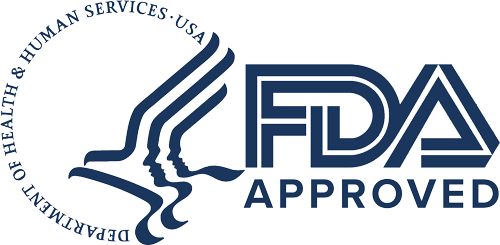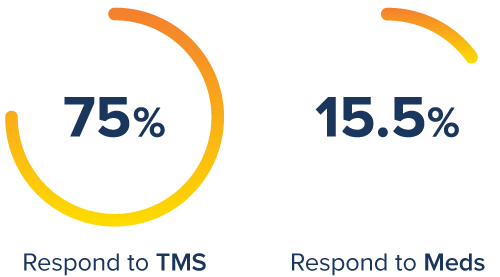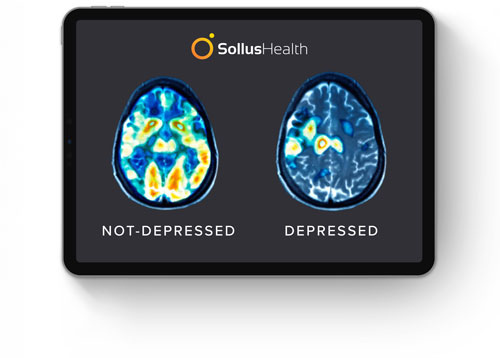TMS Therapy Side Effects: What You Should Know





BREAKTHROUGH TECHNOLOGY
An Overview of TMS Therapy
Before exploring the side effects of TMS therapy, it's important to understand the treatment itself and how it works:
-
Covered by Insurance
-
FDA Approved
-
Covered by Insurance
-
FDA Approved

TAKE THE FIRST STEP TODAY
TMS Covered by Major Insurance Companies

RESPONSE RATES
TMS Versus Medication

NEUROPLASTICITY
Brain Activity Increased with TMS

Proudly Serving San Diego Carlsbad Encinitas Oceanside San Marcos Vista
Break free from depression
Our team is here to guide you through a personalized journey to reclaim your mental health and regain control of your life.






Transcranial Magnetic Stimulation (TMS) therapy provides a powerful option for individuals struggling with mental health conditions, particularly when traditional treatments haven't delivered sufficient relief. This innovative, non-invasive approach continues to gain recognition for both its effectiveness and favorable safety profile. For those researching TMS therapy, it's worth noting that this FDA-approved treatment is generally well-tolerated, with most patients experiencing only mild, temporary side effects. Understanding the treatment process and potential effects helps create realistic expectations while considering this promising path toward improved mental health and emotional wellness.
What Is TMS Therapy?
TMS is a cutting-edge, non-invasive treatment that delivers targeted magnetic pulses to activate regions of the brain that control mood and emotional processing. The therapy specifically targets the prefrontal cortex, which is often underactive in people with depression and other mental health conditions. These magnetic pulses help activate neural pathways and promote more balanced brain activity, potentially alleviating symptoms of conditions like depression, anxiety, OCD, and PTSD.
During TMS therapy, a magnetic coil is placed against the scalp near the forehead. This coil delivers magnetic pulses that pass through the skull to stimulate the brain cells in targeted regions. The pulses are similar in strength to those used in an MRI machine but focused on a much smaller area. This targeted approach is what makes TMS so effective while minimizing side effects throughout the body.
Conditions Effectively Treated with TMS
The FDA has approved TMS therapy primarily for treating Major Depressive Disorder, particularly when other treatments haven't been effective. However, research and clinical experience show promising results for several conditions:
Depression
- TMS therapy has demonstrated significant effectiveness for depression, with many patients experiencing substantial improvement or remission
- Particularly effective for those who haven't responded adequately to antidepressant medications
Anxiety
- Growing evidence supports TMS as an effective treatment for treatment-resistant anxiety
- May help reduce symptoms when traditional treatments have been insufficient
Obsessive-Compulsive Disorder (OCD)
- FDA-approved for OCD treatment
- Targets the specific brain circuits involved in obsessive thoughts and compulsive behaviors
Post-Traumatic Stress Disorder (PTSD)
- Emerging research shows promising results for TMS in treating PTSD
- May help reduce hyperarousal and intrusive symptoms
How TMS Helps These Conditions
TMS works by stimulating underactive brain regions involved in mood regulation and emotional processing. For many mental health conditions, these brain areas show abnormal activity patterns that contribute to symptoms. The magnetic pulses used in TMS help normalize this activity, potentially leading to significant symptom improvement.
Many patients report not only a reduction in their primary symptoms but also improvements in:
- Sleep quality
- Energy levels
- Concentration and focus
- Overall sense of well-being
These comprehensive improvements often contribute to a better quality of life beyond just symptom relief. The non-invasive nature of TMS means these benefits come without the systemic side effects often associated with medication-based treatments.
How TMS Sessions Work
TMS therapy sessions typically last between 20 to 40 minutes. Each session follows a carefully structured protocol:
- Patients sit comfortably in a specialized treatment chair
- Trained technicians position the magnetic coil precisely over the target treatment area
- The TMS device delivers carefully calibrated magnetic pulses
- Patients remain awake and alert throughout the entire procedure
- No anesthesia or sedation is required
- Patients can return to all regular daily activities immediately following TMS session
A standard course of TMS therapy usually consists of sessions five days a week for four to six weeks, though this can vary based on individual needs and responses to treatment.
The Non-Invasive, Medication-Free Advantage
Unlike many other treatments for mental health conditions, TMS therapy doesn't require medication, surgery, or anesthesia. This means:
- No systemic effects throughout the body
- No medication side effects like weight gain, sexual dysfunction, or drowsiness
- No downtime or recovery period
- No cognitive impairment during or after treatment
- No interference with daily activities
This non-invasive nature makes TMS an appealing option for those who have experienced unwanted side effects from medications or who prefer a treatment approach that directly targets brain activity without affecting the entire body.
Are you weighing your treatment options and wondering if TMS might be right for you? Understanding the pros and cons of TMS therapy can help you make an informed decision about your mental health care.
TMS Therapy Side Effects: What to Expect
When considering any treatment, understanding potential side effects is crucial for making informed decisions. TMS therapy is known for its favorable safety profile, with most side effects being mild and temporary. Some patients may experience:
Scalp Discomfort
- Mild to moderate discomfort at the treatment site is the most common side effect
- Typically occurs only during active treatment sessions
- Usually diminishes after the first few sessions as patients become accustomed to the sensation
Headaches
- Some patients report mild headaches, particularly during initial sessions
- These headaches are typically mild and respond well to over-the-counter pain relievers
- Most patients find that headaches become less frequent or disappear entirely as treatment progresses
- Headaches typically resolve within a few hours after the session ends
Temporary Sensations
- Some patients experience tingling sensations during treatment
- These sensations are normal and directly related to the magnetic pulses
- They subside immediately when the treatment stops
It's important to note that these side effects are typically mild and short-lived. They generally occur during active treatment and resolve quickly afterward. Most patients find that any initial discomfort becomes more tolerable or diminishes entirely as they progress through their treatment course.
What to Do If You Experience Side Effects
At Sollus Health, our experienced TMS technicians monitor patients closely during every session. We encourage open communication about any discomfort or side effects you may experience. Often, simple adjustments to the coil position or stimulus intensity can significantly reduce discomfort while maintaining treatment effectiveness.
If you experience any side effects during or after treatment, we recommend:
- Communicating openly with your TMS technician
- Taking over-the-counter pain relievers if needed for headaches (as approved by your doctor)
- Staying hydrated before and after sessions
- Getting adequate rest on treatment days
Remember that while side effects may occur, they are typically mild and temporary, and for most patients, the benefits of TMS therapy far outweigh the minimal and short-lived discomfort.
Choose Sollus Health for TMS Treatment
Proudly serving the North County San Diego area, including Carlsbad, Escondido, Oceanside, San Marcos, and Vista, Sollus Health has created an environment specifically designed to ensure your comfort and well-being throughout your TMS therapy journey. Our approach focuses on personalized care in a serene, supportive setting.
Our Expert TMS Technicians
Our technicians are carefully selected not only for their technical expertise but also for their exceptional listening skills and genuine compassion:
- Attentive to your comfort throughout each session
- Able to make precise adjustments to minimize discomfort
- Deeply committed to your well-being and improvement
- Available to answer questions and address concerns
- Experienced in monitoring and managing any side effects
The Comfort of the Apollo Chair
Sollus Health utilizes the Apollo chair, the highest-rated TMS chair according to the FDA. This specialized chair is designed to maximize comfort during your treatment sessions, allowing you to relax fully while receiving therapy.
The Sollus Health Experience
When you visit our clinic for TMS therapy, you'll be welcomed into a warm, inviting space designed with your comfort in mind:
- Calming environment with soft, soothing colors
- Botanical garden surroundings create a serene atmosphere
- Strategically placed speakers playing gentle music
- Complimentary refreshments, including tea, water, juice, and snacks
The combination of our compassionate staff, state-of-the-art equipment, and comfortable environment creates an exceptional TMS experience that supports optimal treatment outcomes while minimizing any potential side effects. Our team is always available to address any questions or concerns you may have about potential side effects or the treatment process.
To learn if TMS therapy might be right for you, contact our team today to schedule a consultation and take the first step toward lasting relief from your symptoms.
COMPASSION. HOPE. ACTION
Conditions We Treat
Sollus Health offers effective, non-invasive treatment for conditions like depression, OCD, PTSD, and anxiety.
YOUR QUESTIONS ANSWERED
FAQs About TMS Therapy Side Effects



Can't find what you're looking for? Get in touch with our team and we will gladly help out.
Research has not shown any significant long-term side effects from TMS therapy. Most side effects are temporary and resolve shortly after treatment sessions, making TMS a safe option for long-term mental health management.
Most TMS side effects, such as headaches or scalp discomfort, typically last only a few hours after treatment. These mild effects often diminish or disappear entirely as patients progress through their treatment course.
A standard TMS treatment course typically consists of sessions five days a week for four to six weeks. The exact duration of treatment varies based on individual response, with your provider monitoring your progress throughout to determine the optimal treatment length for your specific needs.
Yes, you can drive immediately after TMS therapy. The treatment doesn't require sedation or anesthesia, so patients can safely return to all normal activities, including driving, immediately following each session.
TAKE THE FIRST STEP TODAY
A Simple Process to Begin Your TMS Journey
Take the first step toward lasting relief from depression with TMS therapy, a non-invasive, medication-free treatment designed to restore your well-being.
Break free from depression
Our team is here to guide you through a personalized journey to reclaim your mental health and regain control of your life.

BREAKTHROUGH TECHNOLOGY
Latest News and TMS Innovation
Discover the latest breakthroughs in TMS technology. Our innovative advancements enhance precision and effectiveness, bringing hope to more patients in San Diego.